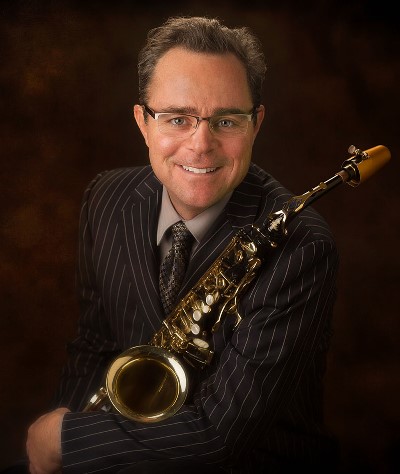
by Kelly Rogge, KCKCC
The University of Missouri-Kansas City has honored Kansas City Kansas Community College’s Jim Mair with a 2017 UMKC Alumni Award.
Mair received the award from the Conservatory of Music and Dance at UMKC during a luncheon April 20. He is a 1990 graduate, receiving his master’s degree from the university.
“Honestly I was in shock,” he said upon learning he received the award. “I thought I misheard what I was being told over the phone.”
Each year, the UMKC Alumni Association Governing Board, as well as the campus, recognizes outstanding alumni. The luncheon also serves as a fundraising opportunity.
In the last decade, the Alumni Awards event has collected almost $1 million in student scholarships and aid. Each college and school on the UMKC campus nominates one alumni to receive an award. In addition, UMKC honors additional alumni and one family with recognitions.
“The Conservatory at UMKC has produced many world renowned musicians and educators,” Mair said. “I’ve never really thought of myself in that echelon. This kind of recognition was never on my radar.”
Mair, professor of music and director of instrumental studies at KCKCC, is also the founder of the Kansas City Jazz Orchestra and started the “Basically Basie” big band competition, which is held during the college’s annual Jazz Summit. In addition, he is the artistic director for the Kansas City High School All Star Jazz Ensemble, leader of the Kansas City Jazz Quintet, producer of the Kansas City Jazz Summit and served as Artistic Director and conductor of the Kansas City Jazz Orchestra from 2003-2010.
Mair said his professors at the University of Mary (Bismarck, N.D.), where he received his bachelor’s degree, suggested moving to a city with a “jazz scene,” which led him to UMKC. He said he also received a teaching assistantship from the university, which helped him pay for his master’s program.
“I gained a strong understanding of how to make a living as a full time musician because I did that for five years. My two years at UMKC allowed me to ‘break into the scene’ and make contacts with musicians that I still work with today,” Mair said. “I also learned that our program at KCKCC has similar struggles as the UMKC program did at the time. I find myself saying, ‘we dealt with the same issue at UMKC when I was a student there.’ The Conservatory approach to instruction is quite different to a more liberal arts educational setting. That approach allows me to adjust to a multitude of learning styles and not be a myopic instructor.”
